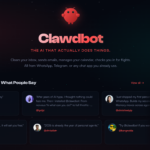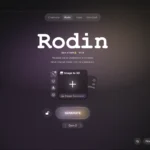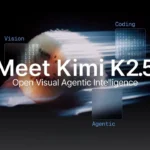The internet is experiencing its most significant transformation in decades. OpenAI has introduced ChatGPT Atlas, a web browser that integrates ChatGPT at its core, fundamentally reimagining how we interact with the digital world. But what makes openai atlas different from every browser you’ve used before? Unlike Chrome or Safari with AI features tacked on, this represents a complete paradigm shift—an AI-native browser designed from the ground up with artificial intelligence as its foundation.
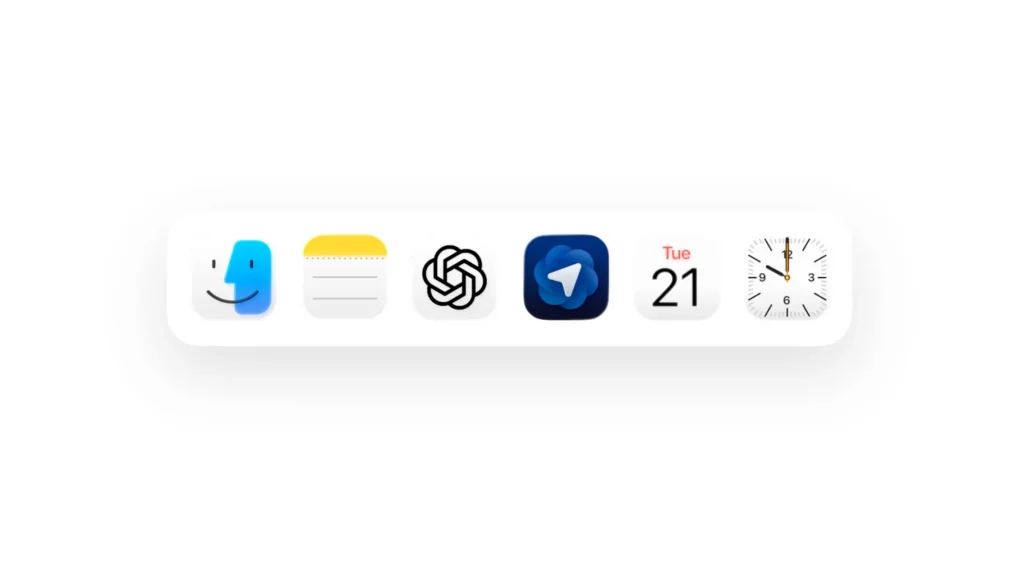
As AI continues reshaping productivity tools and workflows, the browser has emerged as the next critical battleground. Your browser is where all of your work, tools, and context come together—making it the perfect platform for AI integration. With over 800 million weekly ChatGPT users already embracing conversational AI, the launch of Atlas signals a new era where intelligent assistance accompanies you everywhere across the web. This comprehensive guide explores everything you need to know about the chatgpt atlas browser, from its innovative features to practical applications that could transform your daily workflow.
Table of Contents
What is OpenAI Atlas?
ChatGPT Atlas is OpenAI’s first web browser—a sophisticated platform that places conversational AI at the center of your browsing experience. Atlas is based on Chromium, the open-source engine that powers Google’s Chrome, ensuring compatibility and familiarity while introducing revolutionary AI capabilities.
What truly distinguishes the atlas browser from traditional options is its AI-first architecture. Rather than bolting AI features onto an existing browser framework, OpenAI engineered Atlas with ChatGPT as its core operating principle. This means every aspect of your browsing—from searching and reading to completing complex tasks—can leverage the full power of conversational AI.
The company says Atlas will first roll out on macOS, with support for Windows, iOS, and Android coming soon, making it accessible across all major platforms. The browser is available to all ChatGPT users, including those on free plans, though some advanced features require paid subscriptions.
The fundamental difference between Atlas and conventional browsers lies in its approach to web interaction. Traditional browsers serve as passive gateways to websites, requiring you to navigate, search, and act manually. The atlas agent browser, by contrast, understands your context, anticipates your needs, and can autonomously complete tasks on your behalf. It’s not just a tool for accessing the web—it’s an intelligent assistant that accompanies you throughout your online journey.
Think of Atlas as having a knowledgeable companion who understands what you’re trying to accomplish and proactively helps you achieve it. Whether you’re researching complex topics, shopping for products, or managing work projects, ChatGPT is always present and contextually aware, ready to assist without the friction of switching tabs or copying information between windows.
Key Features of the Atlas Browser
ChatGPT Integration: Your Intelligent Browsing Companion
The heart of OpenAI Atlas is its seamless ChatGPT integration, accessible through multiple interfaces designed for maximum convenience. Atlas users will see an “Ask ChatGPT” button on the top right corner of every web page, and clicking it will open up the chatbot in a companion sidebar.
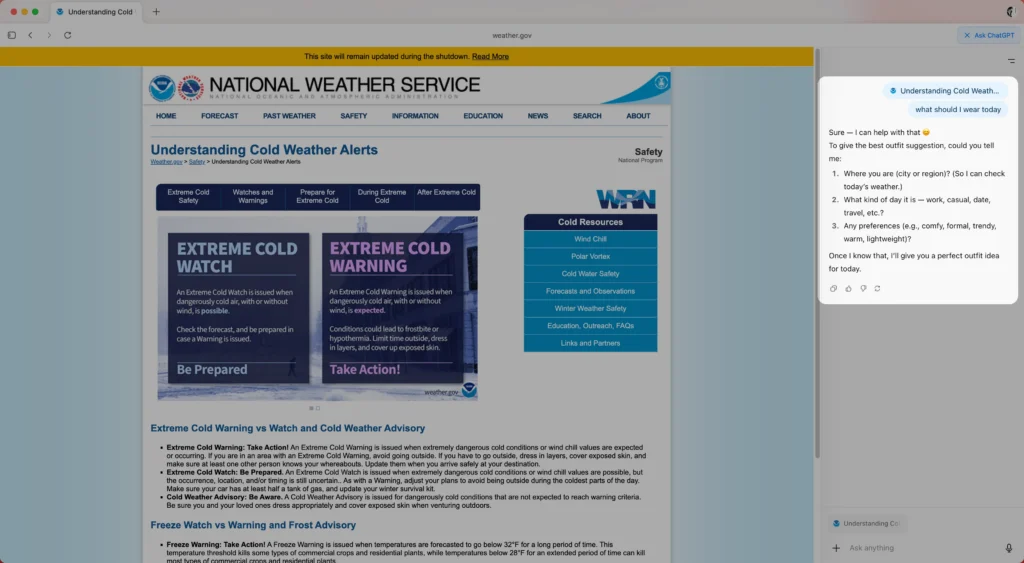
This sidebar functionality revolutionizes how you interact with web content. Since ChatGPT will follow users across the web with Atlas, there is no need to copy and paste between tabs. The AI automatically understands what page you’re viewing and can answer questions, provide summaries, or offer insights based on that context. Reading a complex technical article? Simply highlight confusing terminology and ask “what’s this?” to receive instant explanations.
The new tab page in Atlas replaces traditional search bars with a conversational interface. It’s ChatGPT’s search bar, not Google’s, that greets you upon opening the browser, along with suggestions for topics to research or tasks for ChatGPT’s AI agents to handle. This conversational approach to navigation feels more natural than typing URLs or keywords, allowing you to express your intent in plain language.
Beyond simple queries, the ChatGPT integration understands contextual commands. You can ask it to summarize lengthy documents, compare information across multiple tabs, draft responses to emails visible on screen, or explain concepts without ever leaving your current page. The AI maintains awareness of your browsing session, creating a continuous conversation that evolves as you navigate the web.
Browser Memory System: Context That Travels With You
One of Atlas’s most innovative features is its browser memory system—an optional capability that enables ChatGPT to remember context from your browsing history. Browser memories let ChatGPT remember context from the sites you visit and bring that context back when you need it.
Imagine this practical scenario: You can ask ChatGPT questions like: “Find all the job postings I was looking at last week and create a summary of industry trends so I can prepare for interviews.” The AI doesn’t just access your browsing history—it understands and synthesizes information from your web activity to provide genuinely useful insights.
Privacy and user control are paramount in this system. Browser memories in Atlas are completely optional, and you’re always in control: you can view or archive them at any time in settings, and deleting browsing history deletes any associated browser memories. This gives you granular control over what information persists and what remains temporary.
The memory system offers site-specific permissions too. You can decide which sites ChatGPT can or can’t see using the toggle in the address bar. When visibility is off, ChatGPT can’t view the page content, and no memories are created from it. This means you can selectively share context for work-related sites while keeping personal browsing completely private.
Unlike traditional bookmarks that simply store links, or browser history that only logs URLs, the chatgpt atlas memory system understands content and context. It recognizes patterns in your browsing behavior, recalls specific information from pages you’ve visited, and connects disparate pieces of information across your web journey. This transforms your browser from a simple navigation tool into an intelligent knowledge companion that grows more helpful over time.
Agent Mode Capabilities: AI That Works For You
Perhaps the most futuristic aspect of OpenAI Atlas is its agent mode—a feature that enables ChatGPT to autonomously complete complex multi-step tasks. ChatGPT can also do work for you in Atlas using agent mode, with improvements that make it faster and more useful by working with your browsing context.
The atlas agent browser functionality is particularly powerful for time-consuming online tasks. Imagine you’re planning a dinner party and you have a recipe in mind. You can give the recipe to ChatGPT and ask it to find a grocery store, add all the ingredients to a cart, and order them to your house. The AI navigates websites, interacts with forms, and completes transactions while you supervise or multitask.
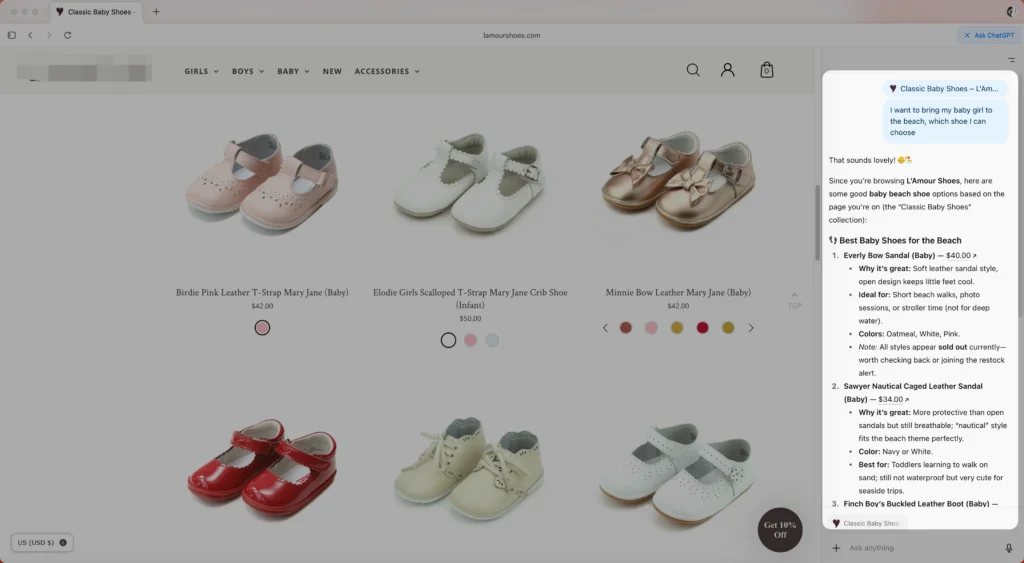
Professional applications are equally impressive. At work, you can ask ChatGPT to open and read through past team documents, perform new competitive research, and compile insights into a team brief. This capability transforms research, analysis, and administrative tasks that might take hours into minutes.
Agent mode in Atlas is available today in preview for Plus, Pro, and Business users, positioning it as a premium feature for power users and organizations. When using agent mode, users can watch the AI in action and have the option to stop a task or take control, ensuring you maintain oversight throughout the automation process.
Real-world applications span numerous domains. For e-commerce, the agent can comparison shop across multiple retailers, analyze product reviews, and complete purchases. For travel planning, it can research destinations, compare flight prices, book accommodations, and create itineraries. For academic research, it can gather sources, extract key information, and compile findings into structured documents.
The key differentiator between Atlas’s agent mode and simple browser automation is its intelligent adaptability. Rather than following rigid scripts, the AI understands goals and adjusts its approach based on what it encounters. If a website layout changes or an unexpected obstacle appears, the agent can problem-solve and find alternative paths to completion.
Privacy and Security Considerations
With great power comes significant responsibility, and OpenAI has implemented comprehensive privacy and security measures for Atlas. Understanding these controls is essential for safe, informed usage.
By default, we don’t use the content you browse to train our models. If you choose to opt-in this content, you can enable “include web browsing” in your data controls settings. This opt-in approach ensures your browsing data remains private unless you explicitly choose to share it for model improvement. Additionally, even if you opt into training, webpages that opt out of GPTBot, will not be trained on, respecting website owners’ preferences.
For sessions requiring maximum privacy, Atlas has an incognito mode, where any browsing being done isn’t linked to your ChatGPT account and isn’t saved in your browser history. This provides the same privacy guarantees as traditional private browsing modes while still allowing AI assistance when needed.
Parental controls extend to Atlas as well. If a parent has set up parental controls for ChatGPT, these settings will carry over to conversations with ChatGPT in Atlas. OpenAI has also introduced browser-specific controls, including options for parents to disable browser memories and agent mode for minors.
However, agent mode does introduce unique security considerations. An Atlas prompt for agent mode warns: “ChatGPT is built to protect you, but there is always some risk that attackers could successfully break our safeguards to access your data, or take actions as you on logged in sites.” This transparent warning acknowledges the inherent risks of granting AI access to your authenticated sessions.
To mitigate these risks, OpenAI has an added control that dictates, on a site-by-site basis, whether its agent is logging into a user’s account or simply browsing the standard web site. You can configure which sites allow agent access to your logged-in accounts, maintaining tighter security for sensitive platforms like banking or healthcare portals.
Best practices for safe Atlas usage include: regularly reviewing browser memories and deleting outdated information, carefully supervising agent mode during sensitive transactions, using incognito mode for highly confidential browsing, maintaining awareness of which sites have agent permissions, and keeping parental controls active for minors. OpenAI notes that the Atlas agent is limited to browsing and can’t execute code or access local files, providing an additional security boundary.
OpenAI Atlas vs. Traditional Browsers
The launch of the atlas browser represents more than just another option in a crowded market—it signals a fundamental shift in how browsers function. The move is likely to intensify the battle over how humans — and their AI agents — experience the internet.
Traditional browsers like Chrome, Edge, and Safari have dominated for years through incremental improvements: faster rendering, better privacy controls, and ecosystem integration. Google’s Chrome browser has roughly 3 billion worldwide users, establishing it as the undisputed leader. These browsers have recently added AI features, but they remain fundamentally search-and-navigate tools with intelligence layered on top.
Atlas takes the opposite approach. Rather than adding AI to an existing browser paradigm, it reimagines browsing as an AI-native activity. OpenAI’s Atlas puts ChatGPT at the center of the browsing experience right from the jump. Every interaction assumes intelligent assistance is available and contextually aware.
The strategic implications are significant. This positions OpenAI as attempting to become the pathway to websites, social media and other online services, giving it a more direct role in everything people do online—territory Google has dominated for two decades. Control of the browser means control over how billions of people access information, making this market enormously valuable.
For users, the benefits of native AI integration are substantial. You experience seamless context switching as ChatGPT maintains awareness across tabs and sessions. Complex tasks become simple conversational requests. Information gathering transforms from manual searching to assisted discovery. The browser anticipates needs rather than waiting for explicit commands.
This shift could fundamentally alter user behavior and productivity. Instead of opening multiple tabs for research, you might describe your goal and let the agent gather information. Rather than manually comparing products across sites, you could request a comprehensive analysis. The browser evolves from a passive tool into an active collaborator in your digital work.

| Category | OpenAI Atlas | Traditional Browsers (Chrome, Edge, Safari, etc.) |
| Core Concept | AI-native browser with ChatGPT at its core | Search-and-navigate tools with limited AI add-ons |
| AI Integration | Built-in, context-aware AI assistance from the start | AI features added on top of existing frameworks |
| User Experience | Conversational, goal-oriented browsing; seamless context across tabs and sessions | Manual navigation between tabs and searches |
| Primary Function | Intelligent assistant for discovery, analysis, and task automation | Tool for accessing websites and performing searches |
| Interaction Style | You describe your intent; the AI gathers and summarizes information | You manually search, read, and compare information |
| Productivity Impact | Transforms browsing into collaboration with an AI agent | Incremental improvements to speed and privacy |
| Strategic Implication | Positions OpenAI as a gateway to the web, challenging Google’s dominance | Google maintains control through Chrome’s massive user base (~3B users) |
| User Benefits | Context retention, proactive assistance, streamlined workflows | Familiar interface, stability, and ecosystem integration |
| Market Significance | Represents a shift toward AI-mediated internet experiences | Continuation of traditional browsing models with gradual AI adoption |
Practical Applications and Use Cases
The true value of openai atlas becomes clear through real-world applications across diverse user groups and scenarios.
For Students and Educators: Imagine researching a complex topic like climate change policy. Rather than juggling multiple tabs and taking manual notes, you can ask Atlas to survey academic sources, extract key arguments, identify areas of consensus and disagreement, and compile everything into a structured outline. The agent can track sources automatically, ensuring proper citations. Students can ask ChatGPT to explain difficult concepts from research papers in simpler terms, or request practice questions based on course material they’re reviewing.
For Professionals and Researchers: Business analysts can leverage the atlas agent browser to monitor industry news, track competitor activities, and compile market intelligence reports. The browser memories remember which companies and trends you’re following, surfacing relevant updates automatically. Legal professionals can research case law across multiple databases, with ChatGPT synthesizing findings and highlighting relevant precedents. The agent mode can even draft preliminary analysis documents based on accumulated research.
For E-commerce and Shopping: Finding the perfect product becomes effortless. Describe what you’re looking for—perhaps “running shoes with good arch support under $150, preferably from sustainable brands”—and let the agent search across retailers, compare specifications, read customer reviews, and present options ranked by your criteria. The browser remembers your size preferences, budget constraints, and brand affinities from previous shopping sessions, making recommendations increasingly personalized.
For Content Creators: This is where Atlas intersects powerfully with Gaga AI’s video generation capabilities. Content creators can use Atlas to research trending topics, analyze competitor content, and gather source material. When you’re ready to create videos, Gaga AI transforms those insights into compelling visual content. The workflow becomes seamless: research with Atlas’s intelligent browsing, ideate with ChatGPT, then execute video production through Gaga AI’s tools. The agent can help script videos by analyzing what content performs well in your niche, suggest optimal publishing times based on audience behavior patterns, and even draft video descriptions and tags.
For Business Teams: Collaborative work gets a significant boost. Imagine preparing for a client presentation about market opportunities in Southeast Asia. You can instruct the agent to research economic indicators, compile competitor positioning, identify potential partnerships, and gather relevant case studies. Browser memories ensure that multiple team members can build on the same research context. The agent can draft meeting agendas by reviewing shared documents and previous discussion threads, ensuring everyone stays aligned.
| User Group | How They Use OpenAI Atlas | Key Benefits & Examples |
| Students & Educators | Use Atlas to research academic topics, summarize findings, and simplify complex concepts. | • Surveys sources and compiles structured outlines • Tracks citations automatically • Explains complex ideas in simpler terms • Generates practice questions for study |
| Professionals & Researchers | Monitor industry trends, analyze competitors, and generate reports or legal summaries. | • Auto-tracks companies and trends • Synthesizes findings and highlights key precedents • Drafts preliminary analysis documents |
| E-commerce & Shoppers | Find and compare products based on personalized criteria. | • Searches across multiple retailers • Reads reviews and ranks best options • Remembers preferences (size, budget, brands) • Offers increasingly personalized recommendations |
| Content Creators | Combine Atlas research with Gaga AI video generation for end-to-end content creation. | • Research trending topics and competitors • Script videos with ChatGPT • Generate visuals using Gaga AI • Suggests publishing times, descriptions, and tags |
| Business Teams | Collaborate on research, presentations, and project planning. | • Shared browser memories for team continuity • Researches markets, competitors, and partnerships • Drafts agendas from shared docs and past discussions • Ensures alignment across teams |
The Future of AI-Powered Browsing
The current iteration of OpenAI Atlas is just the beginning. OpenAI has outlined an ambitious roadmap for expanding capabilities and platform reach.
Multi-profile support will enable seamless switching between personal and professional contexts, each with its own browser memories and agent permissions. Developer tools will allow programmers to build extensions and integrations specifically designed for AI-native browsing. An Apps SDK will let third-party developers create applications that leverage Atlas’s AI capabilities, potentially creating an ecosystem as rich as smartphone app stores.
The industry implications extend beyond OpenAI. OpenAI isn’t the first AI company to see the value in having a browser—Perplexity has Comet, while Google and Microsoft have their existing browsers that could become real estate for future AI features. This competitive landscape will likely accelerate innovation across the industry.
The shift toward agentic systems represents a broader trend in computing. Rather than humans explicitly directing every action, we’re moving toward expressing goals and letting AI determine optimal execution paths. Atlas exemplifies this transition—from “click this, then type that” to “accomplish this objective for me.”
This evolution aligns perfectly with Gaga AI’s vision for democratizing creative production through intelligent tools. Just as Atlas makes web navigation more intelligent and effortless, Gaga AI makes video creation accessible to anyone with ideas, regardless of technical skill. Both represent the future of computing: powerful capabilities made simple through conversational interfaces and intelligent assistance.
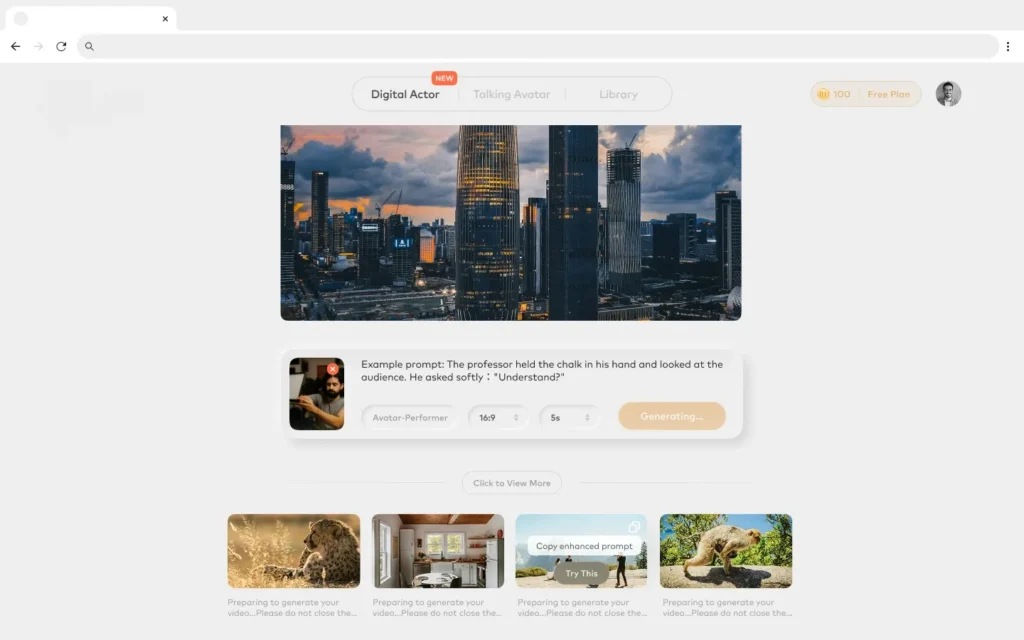
As agentic systems mature, we’ll likely see deeper integration between specialized AI tools. Your browser agent might automatically feed research insights to your content creation tools, which then produce videos, articles, or presentations. Workflows that currently require manual coordination across multiple applications will become orchestrated automatically, with AI handling the connective tissue between tasks.
How Gaga AI Complements OpenAI Atlas
While openai atlas revolutionizes how you browse and research, Gaga AI transforms how you create compelling video content from those insights. The synergy between AI-powered browsing and AI-powered creation creates a seamless productivity workflow.
Consider this integrated process: Use Atlas’s agent mode to research trending topics in your industry, gathering examples, statistics, and expert opinions. ChatGPT synthesizes this research into key talking points and content angles. Then, leverage Gaga AI’s video generation capabilities to transform those insights into engaging video content—complete with visuals, animations, and professional production quality.
The browser memories in Atlas can track which content themes resonate with your audience, informing your creative strategy. When you discover viral video formats during your Atlas browsing, Gaga AI can help you adapt those formats to your brand and message. This closed-loop system—research with Atlas, create with Gaga AI, analyze results, refine approach—accelerates content production while maintaining quality.
For businesses and content creators, this combination delivers unprecedented efficiency. What once required hours of manual research, script writing, and video editing can now flow through an AI-assisted pipeline. Atlas handles information gathering and analysis, while Gaga AI handles creative execution, freeing you to focus on strategy and high-level creative direction.
Final Words
OpenAI Atlas represents a watershed moment in browser evolution—the first truly AI-native platform that reimagines web interaction from first principles. By integrating ChatGPT at its core rather than as an afterthought, the chatgpt atlas browser delivers contextual intelligence, autonomous task completion, and personalized assistance that traditional browsers simply cannot match.
The key benefits are transformative: seamless AI assistance across your entire browsing experience, intelligent browser memories that understand and recall context, powerful agent mode capabilities that automate complex multi-step tasks, comprehensive privacy controls that keep you in command of your data, and a foundation for future innovation in agentic computing.
Ready to experience the future of web browsing? Download OpenAI Atlas today and discover how AI-native browsing can transform your productivity and workflow. And when you’re ready to take your content creation to the next level, explore Gaga AI’s video generation tools to turn your research and insights into compelling visual stories.
The convergence of intelligent browsing and intelligent creation isn’t just coming—it’s already here. The question isn’t whether AI will transform how we work online, but how quickly you’ll adopt these powerful new tools to gain a competitive advantage. The future of the web is conversational, contextual, and agentic. Welcome to the age of AI-powered everything.






